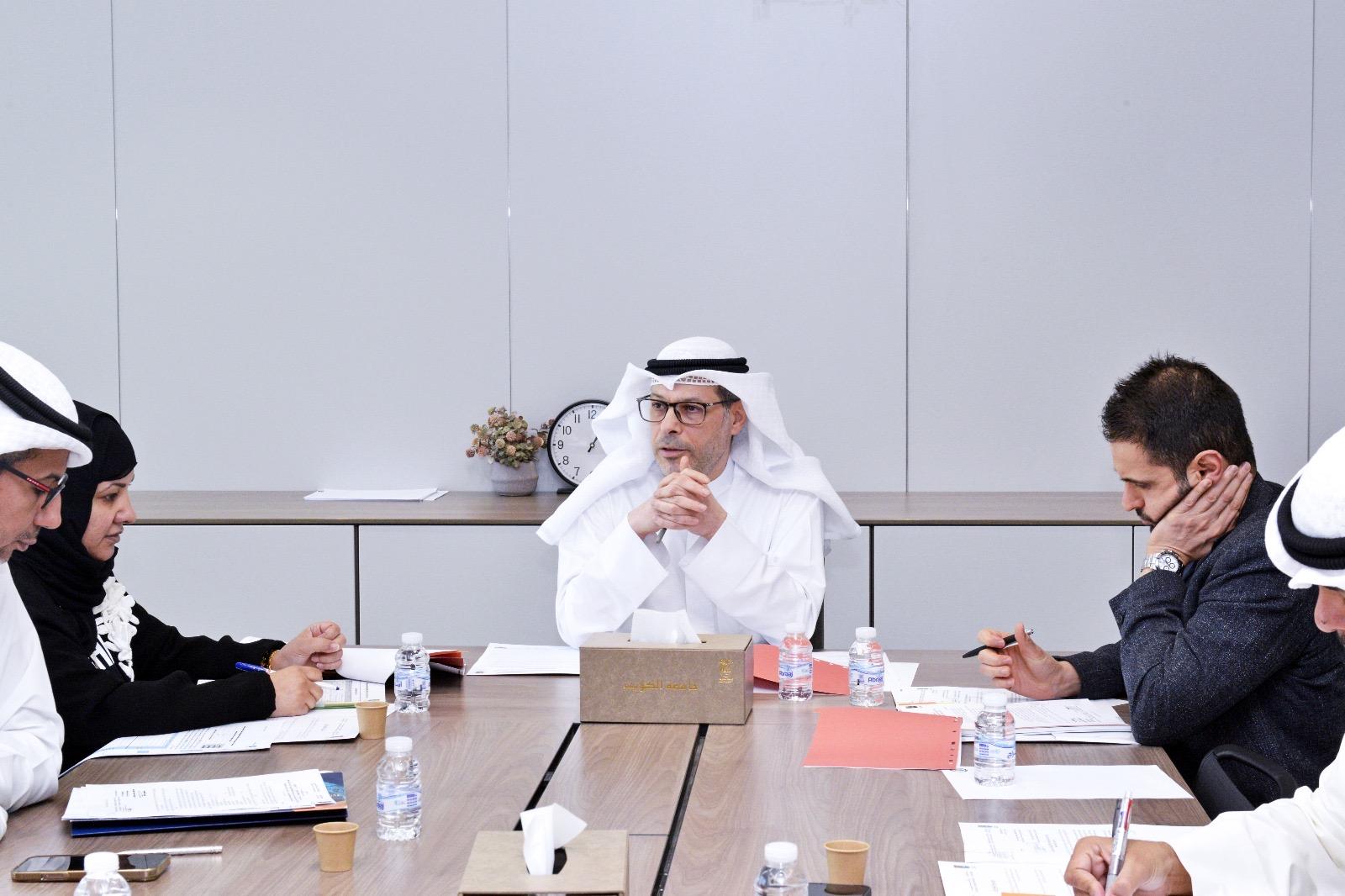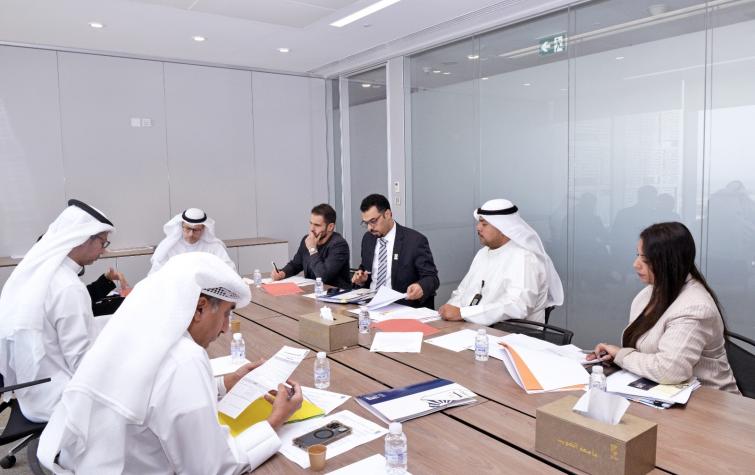
In alignment with Kuwait University's vision to establish a sustainable institutional framework and in compliance with its climate action policy, the President of Kuwait University, Prof. Dina Musaed Al-Mailem, has issued a resolution forming a committee tasked with developing policies and implementation mechanisms for rationalizing electricity consumption. The committee is chaired by Dr. Majed Abdulrazzaq Majeed, Assistant Vice President for Campus Planning, and includes the following members:
• Dr. Fadel Abbas Aziz, Acting Dean of Admission and Registration
• Eng. Hameeda Ajeel Al-Khaldi, Director of construction and Maintenance Department (Committee Rapporteur)
• Dr. Ahmad Ali Al-Sahhaf, representative from the Ministry of Electricity, Water, and Renewable Energy
• Dr. Sultan Shafaqah Al-Anzi, from the Department of Electrical Engineering, College of Engineering and Petroleum
• Dr. Ammar Bahman, from the Department of Mechanical Engineering, College of Engineering and Petroleum
• Mr. Yousef Al-Khamis, Director of the Security and Safety Department
• Eng. Mohammad Al-Rubaie, Maintenance Supervisor at the Facilities and Maintenance Department
• Eng. Lamees Al-Kharafie, from the Campus Planning Division
The committee operates within the Sabah Al-Salem University City.
The first meeting of the committee was chaired by Dr. Majed Abdulrazzaq Majeed, during which the agenda was reviewed and the main items discussed. The meeting began with a reading of the resolution to form the committee and the delineation of its assigned responsibilities. This was followed by the presentation of several proposals and initiatives aimed at promoting energy conservation across university facilities.
It is worth noting that Kuwait University aims to maximize electricity conservation through various initiatives, most notably the enhancement of lighting and air conditioning systems, and the implementation of smart operating systems in select new buildings at Sabah Al-Salem University City. The newly formed committee seeks to unify institutional efforts, monitor adherence to energy-saving programs, and propose advanced technical and engineering solutions that support the University's commitment to facility sustainability and operational efficiency.


 Colored
Colored Grayscale
Grayscale


